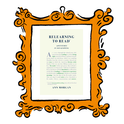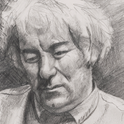It’s been a funny week for English National Opera (ENO). On Saturday, Richard Jones’s production of Wagner’s The Mastersingers of Nuremberg opened to well-deserved five star reviews. This production, which premiered in 2010 at Welsh National Opera, was wonderfully sung and skilfully acted with real musical warmth from Edward Gardner’s orchestra. But all the talk during the intervals was about the crisis engulfing ENO’s management.
On Thursday the Arts Council took the unusual step of putting the company into special measures, with further funding dependant on a shake-up of the senior team. Speaking bluntly, the Arts Council’s Althea Efunshile said that although ENO was capable of “extraordinary artistic work”, there were “serious concerns about their governance and business model and we expect them to improve or they could face the removal of our funding.”
The farrago became public in late January when a letter was leaked from ENO’s outgoing chairman, Martyn Rose, who resigned at the end of last year. He said that since John Berry took over as artistic director nearly 10 years ago, the company has lost £10 million (ENO disputes that figure). He wrote that, “for the very survival of the ENO Berry must leave, preferably soon.” A fortnight ago their executive director Henriette Götz also announced she was stepping down after what the Guardian described as “repeated clashes with Berry.”
There’s nothing we like more than a good public squabble in the arts, especially in opera—an art form that requires public subsidy but which still gives the impression of rarefied exclusivity. But there’s more at stake than the divas in the boardroom. This week the director Peter Sellars, who is directing a revamped version of Purcell’s The Indian Queen at ENO this month, said that “cultural meltdown is the order of the day. There’s not one theatre or opera company that can sell out anything anymore.” Sellars is right that beyond the gossip there is a deeper question about the role of opera houses in Britain: should they stick to traditional strengths—familiar operas, period costumes—or should they take risks and innovate, the cost of which can be commercial failure?
By coincidence, Wagner’s comedy the Mastersingers grapples with a related conundrum and offers suggestive pointers to how it could be solved. Set in medieval Nuremberg, it follows a song-contest held by the great and the good of the city. The reward for winning the contest is the hand of the beautiful Eva. Beckmesser, who believes songs should be sung according to rigid historical rules, is confident he will win. But his plans are spoiled when the knight Walther turns up, falls in love with Eva, and decides to enter the contest. Walther has no musical experience and his early attempts at singing earn him the derision of all the mastersingers—except one. The cobbler and song-writer Hans Sachs (based on a real historical figure) hears a spirited romance in Walther’s voice and trains him up for the competition. Sachs finds a middle-ground between knowing when to obey the rules and when to break them.
During his lifetime, Wagner was criticised for his revolutionary approach to opera. John Berry, too, has taken his fare share of flak for productions which to some have been wilfully perverse and uncommercial. I admit, I was not a fan of Calixto Bieito’s sleazy Carmen or the baffling Castor and Pollux from 2011. But I have loved some of the weirder productions—Phelim McDermott's Satyagraha, Terry Gilliam’s Benvenuto Cellini, Simon McBurney’s TheMagic Flute. ENO also feels a lot more welcoming than the still rather snooty Royal Opera House. It is also cheaper: decent tickets for the Mastersingers start at £16—a rate of £3/hour. The reason that prices can remain reasonable is because of the public subsidy that ENO gets—and which its current fiasco threatens.
The famously problematic ending of the Mastersingers, with Sachs’s nationalistic call to maintain the purity of German art, was tackled in a suggestive way by Richard Jones. As Sachs sang each cast member held up a picture of a German artistic hero: from Haydn to Freud to Walter Benjamin Pina Bausch. It was a thought-provoking moment but also a moving one. The message was to honour our national artists—something that, for all the issues of governance at ENO, the Arts Council and our politicians would do well to heed.
What Wagner can tell us about the crisis at ENO
The Mastersingers of Nuremberg was a triumph for English National Opera in a week it was told by the Arts Council to get its act together
February 13, 2015

Iain Paterson and-Gwyn-Hughes Jones in ENO's Mastersingers of Nuremberg by Richard Wagner © Catherine Ashmore











